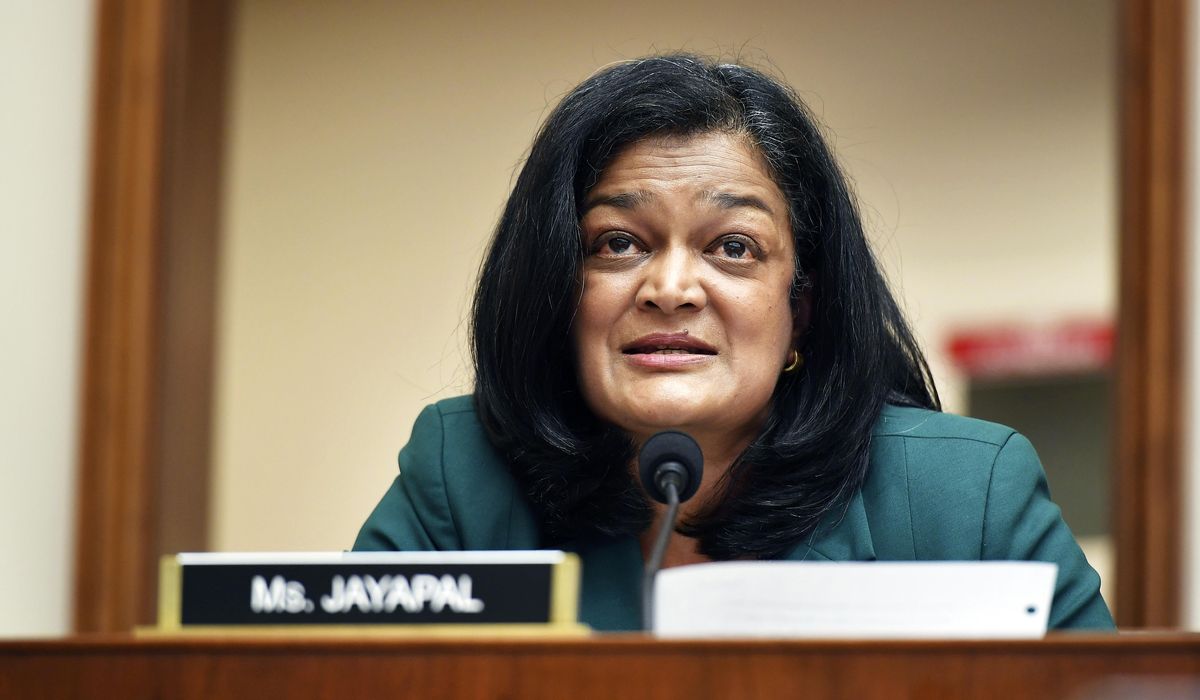
A fundraising email sent out by Rep. Pramila Jayapal blasted moderate Democrats over their threat to derail the $3.5 trillion party line spending bill if a House vote does not happen first on the bipartisan infrastructure package.
Ms. Jayapal, Washington state Democrat, asked people to donate to her campaign in a Saturday email, promising “big, bold, and fast investments” while attacking members of her own caucus.
“We can’t call people moderate Democrats if they vote against child care, paid leave, health care, and addressing climate change,” the email read. “This is the Democratic agenda, it is the president’s agenda, and it is what we promised people across America.”
Ms. Jayapal’s email comes after nine moderate Democrats sent a letter to House Speaker Nancy Pelosi on Friday, saying they would not vote for the budget resolution until the bipartisan infrastructure bill passes in the House and is signed into law.
The lawmakers who signed the letter include Reps. Josh Gottheimer of New Jersey, Carolyn Bourdeaux of Georgia, Filemon Vela of Texas, Jared Golden of Maine, Henry Cuellar of Texas, Vincente Gonzalez of Texas, Ed Case of Hawaii, Jim Costa of California, and Kurt Schrader of Oregon.
The letter also followed another one sent to Mrs. Pelosi last week by six moderate Democrats urging to stop “unnecessary delays” in passing the infrastructure bill.
Mrs. Pelosi said that she would not have the House take up the $1.2 trillion infrastructure bill to fund roads, bridges, broadband, and railway projects that was passed by the Senate last week until the upper chamber gets through the $3.5 trillion bill of social programs.
The Democrats’ budget bill includes initiatives such as free community college, universal pre-kindergarten, as well as some climate change and immigration reforms.
Democrats supportive of the proposals have dubbed the priorities “human infrastructure.”
Republicans are unlikely to support such a package, so Democrats are planning to pass the bill along party lines through budget reconciliation.
The process would allow members to pass the bill with a simple majority of 51 votes and avoid the Senate’s 60-vote filibuster threshold.







